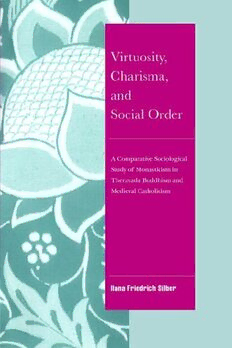
Virtuosity, Charisma and Social Order: A Comparative Sociological Study of Monasticism in Theravada Buddhism and Medieval Catholicism PDF
260 Pages·2005·4.813 MB·English
Most books are stored in the elastic cloud where traffic is expensive. For this reason, we have a limit on daily download.
Preview Virtuosity, Charisma and Social Order: A Comparative Sociological Study of Monasticism in Theravada Buddhism and Medieval Catholicism
Description:
This is a comparative study of the interaction between monasticism and society in Theravada Buddhism and medieval Catholicism. Building on Weber's classical analysis of religious virtuosity on one hand, and opposing recent comparative historical sociology's neglect of structures of meaning on the other, the author demonstrates the combined impact of religious orientations, macrosocietal structures, and virtuoso radicalism in shaping the ideological power of religious elites in the historical framework of the Great Traditions.
See more
The list of books you might like
Most books are stored in the elastic cloud where traffic is expensive. For this reason, we have a limit on daily download.
